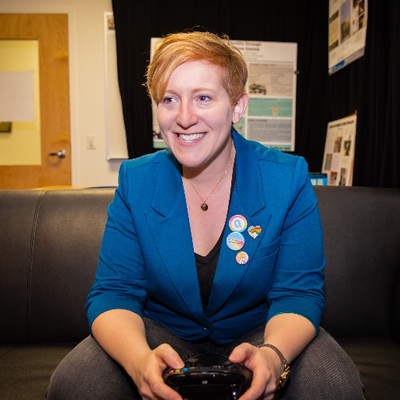After roughly three years in the works, I’m honored to say that my article “Representing Sex Workers in Video Games: Feminisms, Fantasies of Exceptionalism, and the Value of Erotic Labor,” was published yesterday with the fabulous journal Feminist Media Studies! It’s a pro-sex-worker take that challenges the misconception that sex workers are by definition “objectified” in games. Instead, it looks at how AAA video games devalue sexual labor and why we need space for multiple feminisms within game studies.
Here’s the abstract:
This article critiques the representation of sex workers in “AAA” video games, with a focus on the devaluing of erotic labor. Existing feminist commentary has interpreted these representations as examples of the objectification of female game characters, perpetuating harmful misconceptions of sex work as fundamentally exploitative. By contrast, taking cues from feminist media studies, porn studies, and sex workers rights activism, I argue that what makes these representations of sex workers problematic is not their engagement in erotic labor but the ways that the games in which they appear devalue that labor, through both dialogue and interactive elements. Across their many appearances in AAA games, it is strikingly common for sex workers to offer their services to player-characters for free or at a discount, or for games to allow players to take their money back after erotic labor has been performed. This contributes to a gendered fantasy of exceptionalism in which a player-character’s masculinity is tied to being too attractive or too powerful to pay for sex. Critiquing these representations demonstrates how AAA video games prompt players to reenact widespread cultural biases against sex work. It also points toward the need for a diversity of feminisms within game studies.
If you have institutional access, you can read the article on the Feminist Media Studies site — or you can go here to access the article as a PDF.

